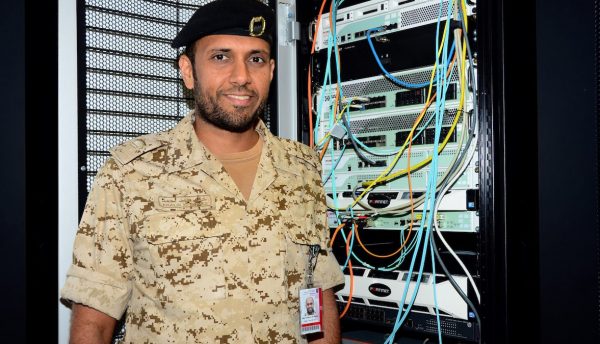Fortinet announced that the King Hamad University Hospital has leveraged the Fortinet Security Fabric, including FortiGate enterprise firewalls and FortiMail email security solutions, to protect a network of 1,200 employees from email spam and malware. The Fortinet Security Fabric provides King Hamad Hospital with an integrated and adaptive end to end security architecture to protect its entire distributed network through a single management interface.
Located in Muharraq, Bahrain, King Hamad University Hospital provides medical services utilising therapeutic and administrative practices and academic and research services, with an independent budget attached to the Bahrain Defense Force’s budget. The healthcare institution currently has nine internal wards and a capacity of 311 beds within its 172,000 square meter facility.
To protect its network environment, King Hamad Hospital previously relied on several security products from different vendors, and encountered a number of challenges managing the disparate solutions and effectively dealing with threats. The hospital decided to replace its existing security infrastructure with one single vendor to increase the effectiveness and integration of its security while reducing complexity.
After conducting an analysis of competing solutions, King Hamad University Hospital selected Fortinet because its solutions met a full range of performance levels that adapted to the hospitals stringent compliance and regulation requirements.
King Hamad Hospital deployed a variety of Fortinet’s solutions including the FortiDDoS advanced DDoS protection for datacentres, FortiGate enterprise firewalls offering antivirus, web filtering, and anti spam capabilities and FortiMail email security solutions to stop email threats and protect sensitive information. The healthcare institution has also deployed Fortinet’s FortiCache web caching that reduces bandwidth needs, accelerates applications, and increases network performance while preventing access to dangerous content with integrated web filtering.
Additionally, with Fortinet’s FortiAnalyzer 1000D, a centralised logging and reporting appliance, the hospital is able to log daily data from all FortiGate enterprise firewalls and create statistics and reports.
King Hamad University Hospital has also subscribed to Fortinet’s FortiGuard services, which provides cyber security protection against content and network level threats. The service is powered by Fortinet’s global threat research team, FortiGuard Labs, and offers up to date security expertise and threat signature updates, which are delivered in real-time to Fortinet devices around the world.
“Cyber threats are a constant source of growing concern for healthcare organisations. Without an integrated and adaptive security infrastructure and limited IT staff to manage various solutions, King Hamad Hospital’s network was difficult to manage and safeguard from the expanding and evolving threat landscape. We found that only Fortinet provides an end to end security solution that is adaptive, extremely easy to manage, and provides the security features and performance necessary to keep our corporate and patient data safe,” said Major Khalid Al Khalifa, CIO, ICT Department, King Hamad University Hospital.
“A three-member team is currently responsible for managing the security solution, but thanks to the intuitive interface and integration of all the Fortinet solutions, the hospital’s team did not need training on the new appliances. The team now spends just one hour on the appliances each day, with the majority of time spent on fine tuning,” he added.
“The Middle East cyber threat landscape is very active, and businesses have to invest in cutting edge solutions that protect their assets and staff from current and future threats. Email has long been a favourite attack vector of cyber criminals and is often an early stage of advanced threats. But not only do you need to keep threats from getting in, you need to keep data from getting out,” said Alain Penel, Regional Vice President, Middle East, Fortinet.
“The Fortinet Security Fabric provides organisations like King Hamad University Hospital with an integrated, collaborative, end to end security architecture that protects the entire IT infrastructure through a single management interface. Our company consistently invests in improving its solutions, and the results show. King Hamad University Hospital evaluated many solutions and ultimately selected Fortinet as its security partner of choice.”
Click below to share this article







